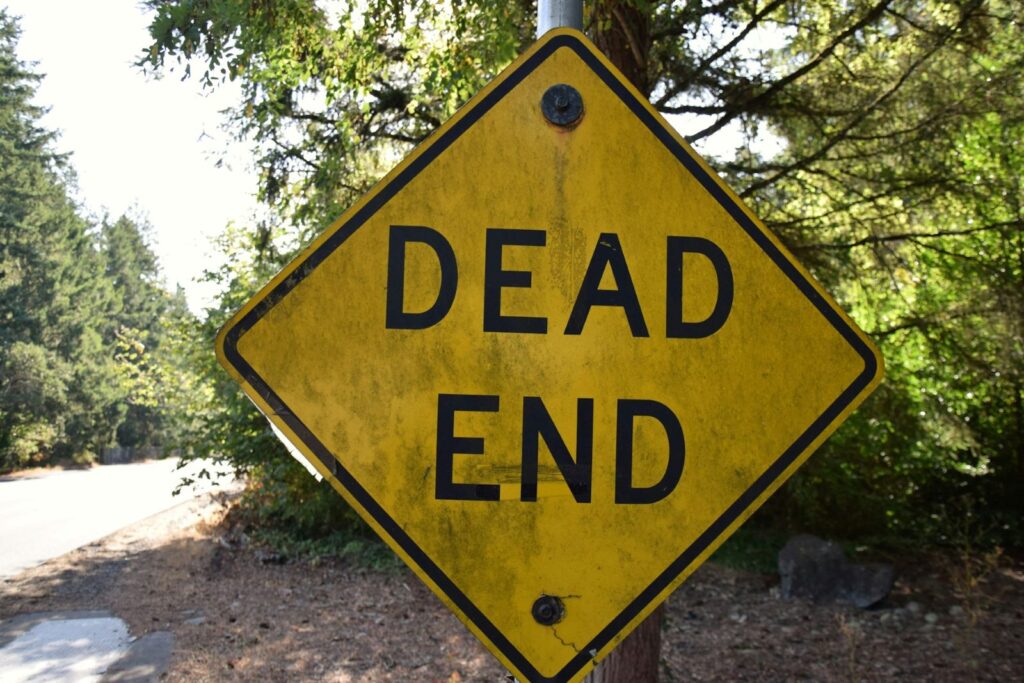I keep thinking about a song I first heard more than 20 years ago called “Eg Ser.” Unfortunately, there’s no publicly available version I can share, but you can purchase the album it came from. And YouTube offers numerous options, just not the one I’m thinking of. Anyway, “Eg Ser” is a Norwegian song, and the English translation I like best is:
I can see that you are tired, but I cannot walk all the steps for you
They are yours to walk, but I can walk them with you
And I will walk them with you
I can see that you’re in pain, but I cannot cry any tears for you
They are yours to cry, but I can cry them with you
And I will cry them with you
The song is what I imagine God, the Divine Beloved, Higher Power, whatever word you want to use, would say to us. Not, “I’ll take away your pain,” but “I will be with you in your pain.” I think most spiritual traditions espouse the idea of the Divine being our constant companion, but something I notice in myself and others is another concept sneaking in through the back door: that God is Santa Claus and/or the universe is a vending machine.
It’s not just the Law of Attraction, New Age manifestation stuff. And it’s not just the Judeo-Christian version of God. It’s in Eastern traditions too. It’s in earth-based practices. It’s in rituals and prayers the world over. There’s a version of spirituality that says, “If you do this ritual, you’ll find a partner/a job/a house.” Or “If you pray such and such a way, your cancer will be cured.”
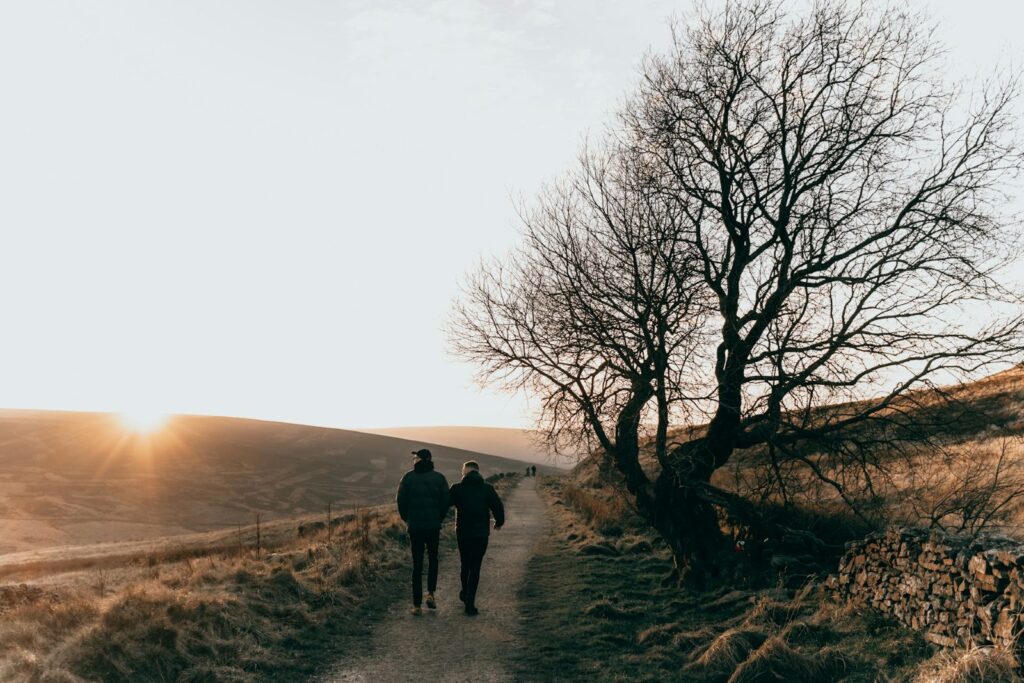
There is a force that’s always with us. Photo by Henry Ravenscroft on Unsplash
And there are just enough stories of the rituals and prayers working that it gives people hope it will work for them too. If they also fast under the darkness of the new moon and chant the name of a certain God, they, too, will get married. But then what happens when the ritual or prayer doesn’t work? They either think they did it wrong or they did it right, didn’t get their desired outcome, and feel betrayed by God.
I understand this, believe me, I do. But what I’m coming to, again, is that the Divine Beloved isn’t Santa Claus, the universe isn’t a vending machine, and we can’t control outcomes. We can take action, we can go on Zillow to search for a new home, but we cannot control whether our offer is accepted. That’s reality. And so mature, grounded spirituality is about relationality. It’s about companionship.
My spiritual teacher says that the Divine is our one true friend because we can never be separated. “Your relationship with [Cosmic Consciousness] is like the relationship of a fish with water,” he says. But like with any friendship, we can only be accompanied along the way. The tears are still ours to cry, the steps are still ours to walk. We still have to experience everything – the good, the bad, and the ugly – but we have a constant companion, and that makes a difference.
I dream of a world where we understand God isn’t Santa Claus and the universe isn’t a vending machine. A world where we recognize there is only so much we can do to control the outcomes of our lives. A world where we realize spirituality doesn’t shield us from horrible things happening; instead, it gives us tools to cope. A world where we remember that through everything, we have a constant companion.
Another world is not only possible, it’s probable.
You may already know this, but AI safety researcher Mrinank Sharma resigned recently. That’s not really news in and of itself – people leave their positions all the time. No, the newsworthy part is that he left Anthropic, best known for its chatbot Claude, to study, drumroll please: poetry. Yes, poetry.
The context is what makes the whole thing fascinating. My friend and narrative astrologer Ada Pembroke sums it up nicely: “[S]omeone who spent years trying to build AI safety guardrails has decided the answer isn’t better guardrails. The answer is wisdom. And he’s going to look for wisdom the way humans always have: through art, through language that means more than one thing, through the practice of courageous speech.”
To be honest with you, I struggle with poetry. I’m a highly literal person and I want people to say what they mean and mean what they say. But Ada suggests poetry is powerful precisely because it’s not that (mostly). Poetry collapses multiple symbols all into one. It encourages us to dive deeper, to look again, and that’s what AI cannot do because it, too, is very literal. And per her second point, poetry can be courageous.

The pen is still mighty! Photo by Aaron Burden on Unsplash
I’ve known for ages that journalists are frequently jailed for their writing. Reporting the truth can be dangerous in a time when governments want to function on lies. What permeated my brain less is that poets are also jailed. In 2024, 375 writers were jailed in connection with their speech, according to PEN America’s Freedom to Write Index, and 67 of them were poets. In Myanmar, poets led protests with poetry readings to support civil resistance following the military’s February 2021 coup; several were arrested and detained.
In Iran, poets who posted and recited poetry on social media were arrested by authorities looking to silence support for the Woman, Life, Freedom movement. In a few places, poets are jailed not for months but for years. As PEN America puts it: “Authoritarian leaders target poets because their words – filled with lyricism, story, and feeling – can expose the cracks of oppression in daily life.”
My spiritual teacher encourages people to make art not for art’s sake but for service and blessedness, meaning, to spur their love of the divine. He says artists are pioneers and can lead society forward. Literature in particular is “that which moves together with the society, which leads society towards true fulfillment and welfare by providing the inspiration for service,” he says. “People seek deliverance from the whirlpools of darkness; they aspire to illuminate their lives and minds with ever-new light. In all their actions, in all their feelings, there is an inherent tendency to move forward; therefore, if at all they are to be offered something, the creator of art cannot remain idle or inert.”
What my spiritual teacher is pointing to is the power of art. It’s not merely commerce, a way to make a quick buck, but a tool for good or evil. Art influences people, whether they want to admit it or not, and in this age of AI slop, original, human-created art that speaks to the times we live in is potent.
I dream of a world where we remember that art still matters. A world where we understand there can be more to art than just amusing people or trying to capitalize on a trend. A world where we remember art and literature can be a tool of service and inspiration. A world where we recognize the power of art and use it accordingly.
Another world is not only possible, it’s probable.
When life gets stressful or complicated, I notice a tendency in me (and in some people I know) to make things even more stressful, even more complicated. I don’t know why exactly, but I suspect it’s because when people are scared, they start scanning for threats and want to resolve them all. It feels protective to try to fix everything. I don’t know about you, but for me, that only makes things worse.
Trying to do more when I’m already stressed and overwhelmed only ends in disaster, and my body pays the price. So instead, I have to remind myself, “Keep it simple.” Instead of raising the bar, I lower it. Rather than making dinner from scratch, I heat prepared food. Rather than making big decisions, I set those aside. It’s not what I want to do, but I’m learning that when I’m running hot, for whatever reason, the best thing for me is to turn down the temperature. This is also the advice I’m giving to others.
A few of my friends are going through some major challenges and they’re spinning out about what’s next. When they call me, I’m not helping them problem-solve (usually). Instead, I say to them, “Breathe with me. Inhale for four seconds, hold for two, and exhale for six.” And then we do that together for a couple of minutes. That’s it. Just breathe together. And then to orient them to the here and now, I ask them to tell me five things they can see, four things they can touch (and actually touch them), three things they can hear, two things they can smell, and one thing they can taste.

So simple. So lovely. Photo by Tyler Lastovich on Unsplash
We make everything very simple. We come back to this body, this breath, and then the very next right action. That could be making dinner or taking a shower or going to bed. Big decisions, ferreting out the truth, and analyzing the world are activities for when we’re regulated, not when we’re activated. There’s a part of me saying, “Really, Rebekah? You’re writing about self-regulation and keeping things simple? That’s the message you want to share this week? Not explaining the origins of the universe? Or illuminating some grand spiritual concept? This? This?” The answer is “yes.”
One of my favorite quotes about spirituality is, “There’s only one path to God, and that’s through the spine.” Some people think of spirituality as something “out there,” or that the human body is a nuisance. It’s not. The body is the path to enlightenment because everything happens to or in the body. And so that means in some ways there’s nothing more profound, nothing more sacred, than taking care of this form. And “taking care of” isn’t just eating nourishing food and exercising. It’s also supporting the nervous system. It’s actively putting ourselves back into a place of spaciousness.
Note that I said “spaciousness” and not “calm.” That was intentional because there are times we shouldn’t be calm. There are times when it makes complete sense to feel angry or sad or scared. But you can feel angry and not become reactive. You can feel sad and not let it consume you. That’s what breathing deeply and orienting toward the physical space around you does – creates a little more separation, a little more choice.
In this day and age where there are about a billion things that can elicit strong emotions and keep us operating from our limbic systems, I can think of no more powerful suggestion than, “Keep it simple.” Because when we do, we’re telling ourselves, “I matter.” And that’s true.
I dream of a world where we understand that when we want to complicate things, that’s likely when we most need to simplify. A world where we pause, breathe, and orient to what’s before us. A world where we do the next right action. A world where we keep it simple.
Another world is not only possible, it’s probable.
I wrote this post in April 2019 after I was fired from a job that wouldn’t let me work from home two days a week, despite having a doctor’s note saying I needed that setup. Oh, the irony that a year later everyone was working from home. . .Despite different circumstances, this post is still relevant today. Enjoy.
You know how people say most of the things they’re afraid of never happen? The opposite is true for me – most of the things I’ve feared have happened. Not the fleeting, “I’m scared I’ll miss my flight” things, but the “I’m scared I’ll be broken into” things. The recurring fears, the ones that cause my stomach to roil and my chest to constrict.
I want to take a moment here to recognize my fears are those of a privileged white woman. I totally understand that other people lead tougher lives than I do, with fears greater than mine. I understand I have a relatively easy, cushy life. I’m not here to get into a competition about that. Rather, the point of this post is to talk about fear and resilience.
For much of my life, I’ve braced myself for terrible things. I’ve done my best to ward them off, but they happened anyway. And because they happened, I feel less afraid now. I no longer have to fear the worst because the worst has happened and I’ve lived to tell the tale. It also means I know how to take care of myself in challenging times. If I have to endure a hardship again, I will because I did before.
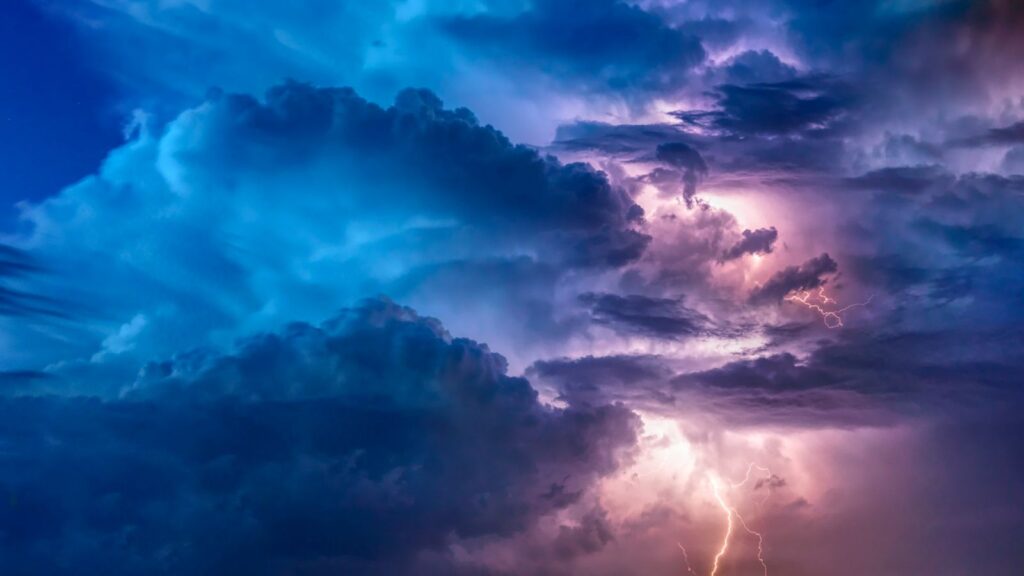
We are more powerful than we know. Photo by Felix Mittermeier on Unsplash
Researcher and storyteller Brené Brown writes about this character trait, resilience, in her book Rising Strong. She said, “While vulnerability is the birthplace of many of the fulfilling experiences we long for – love, belonging, joy, creativity, and trust, to name a few – the process of regaining our emotional footing in the midst of struggle is where our courage is tested and our values are forged. Rising strong after a fall is how we cultivate wholeheartedness in our lives; it’s the process that teaches us the most about who we are.”
Check and check. I used to think of myself as a scaredy cat. As someone sensitive and fragile. And I am, but at the same time, I’m also tough. I’m brave. I’m strong. I’m resilient. I pick myself up again and again. When life kicks me in the teeth, I collapse, I cry, but then I do the hard thing and move through it. I’ve already surmounted many obstacles in my life. And I know if I don’t currently have the tools to get through whatever is before me, I will hunt tirelessly to find the right ones. This ties into spirituality because the backbone is faith.
My spiritual teacher says over and over again if a person takes shelter in the Supreme, they need not be afraid of anything in this world. That the divine is “more courageous than the most courageous and braver than the bravest. Those who take shelter in [the divine] are therefore bound to acquire these qualities: courage, bravery, chivalry, and so on. Once endowed with such qualities, what is there to fear?”
I’m a human being, so I still fear many things, but I know the more I lean into the presence of my higher power, the better I feel. The more I surrender, the more I recognize everything is an expression of an infinite loving consciousness; the more relaxed I become, and also the more fearless. There’s a quote floating around about how the devil whispered in a warrior’s ear: “You’re not strong enough to withstand the storm.” And then the warrior responded, “I am the storm.” That’s what it feels like right now. And if you’re going through a hard time, I hope you can muster up that same spirit.
I dream of a world where we recognize our resilience. A world where we understand we’re able to tackle all the challenges coming our way. A world where we become more and more fearless because we understand not only are we strong enough to withstand the storm, but that we are the storm.
Another world is not only possible, it’s probable.
Something that’s on my mind a lot is the desire for one-and-done. I want the magic pill, the silver bullet, the “do this once and everything is fixed” solution. I see this in myself but I also see it in the rhetoric we use when talking about the world writ large. “Save the world,” we say, as if the planet is in need of rescuing. That’s what “saving” means, by the way, to rescue from impending danger. Here’s the thing, though: When in human history have we as a species not been in impending danger? Seriously, when?
Our ancestors were in danger on a smaller scale but no less threatening – danger from food scarcity, warring tribes, diseases, and more. As we edged toward globalization, the threats became even larger and more climactic, literally. We still have danger from food scarcity, war, and diseases, but now we also have danger from things like extreme weather. And as we’re seeing, we’re all connected. A storm in the northeast can affect people in the southwest.
We talk about saving the world as if we haven’t had to confront these issues a million times in the past. As if we haven’t already had to deal with government-sanctioned murder. As if we haven’t already faced extreme exploitation or inequality. As if we haven’t already dealt with harsh weather conditions. The circumstances, the specifics, they are all different, yes, absolutely. But the heart? The themes? Practically timeless.
So what I keep wondering is, can the world be saved? Is there a silver bullet that fixes everything? Very clearly, the answer is “no.” When we talk about “saving the world,” we couch it not only as a one-time fix, but we also subtly create this individualist burden. Doing so makes “saving the world” your personal responsibility. But it’s not. We are in relationship with this planet and each other. No one person can “save” the world and nor should they.
Something my spiritual teacher talks about frequently is “coordinated cooperation.” It’s when cooperation is between free human beings, each with equal rights, mutual respect for each other, and they are working for the welfare of the other. What we see more frequently is subordinated cooperation, which is the traditional power structure whereby power is top-down. It’s someone, or a group of someones, imposing their will. But it never works.
To quote my spiritual teacher, “Only the cooperative system can ensure the healthy, integrated progress of humanity, and establish complete and everlasting unity among the human race. People should work to enjoy sweeter fruits by establishing the cooperative system.”
A cooperative system cannot exist if one group is considered inferior to another. Nor can coordinated cooperation exist if it’s imposed upon the group. I believe the same is true with the planet as a whole. We humans think we know what the planet needs, but how can we possibly know if we don’t have a relationship with it yet? That’s like us diverting a river and then being surprised when there are unintended consequences.
I don’t think the world needs to be “saved,” I think it, and we, need empowerment via mutuality and relationality. The planet as a whole needs tending, serving, stewarding, not domineering. Not imposing power over, but power with as an equal player, an active participant. And part of being an active participant means recognizing there is no “one-and-done.” There is no magic pill or silver bullet. If we want to serve the world, if we want to shepherd it into a more harmonious place, we do that over and over again, one day at a time.
I dream of a world where we recognize we aren’t saviors, we’re stewards. A world where we recognize no one person has the power to solve everything all at once. A world where instead of creating power over, we create power with. A world where we understand if we really want to support people and the planet, it requires an ongoing, mutual relationship, not a white knight.
Another world is not only possible, it’s probable.
I watched a retelling of Cinderella that absolutely gutted me because it was so sad, so unjust. I’m not going to link to it because I’m about to give major spoilers, but if you’d like to see it, message me. This adult version of the story was told from the perspective of one of the stepsisters, Drizilla, and in it, Cinderella was a manipulative psychopath who lied, cheated, and stole. The story ends with Drizella in a sanatorium, not visited by a single person, while Cinderella became a princess.
So again, not a “happily ever after” kind of story. Not a “feel-good” kind of story. It was a brutal story that touched on something very important, which Drizella said near the end: “No one really wants the truth. Not when the truth is ugly, and the liar is beautiful.” Yeeees. The truth is ugly, uncomfortable. It often asks something of us. It forces us to look at something we’d rather not look at because it challenges our worldview or a belief we have about someone or ourselves. It’s much easier, in some ways, to keep living a lie.
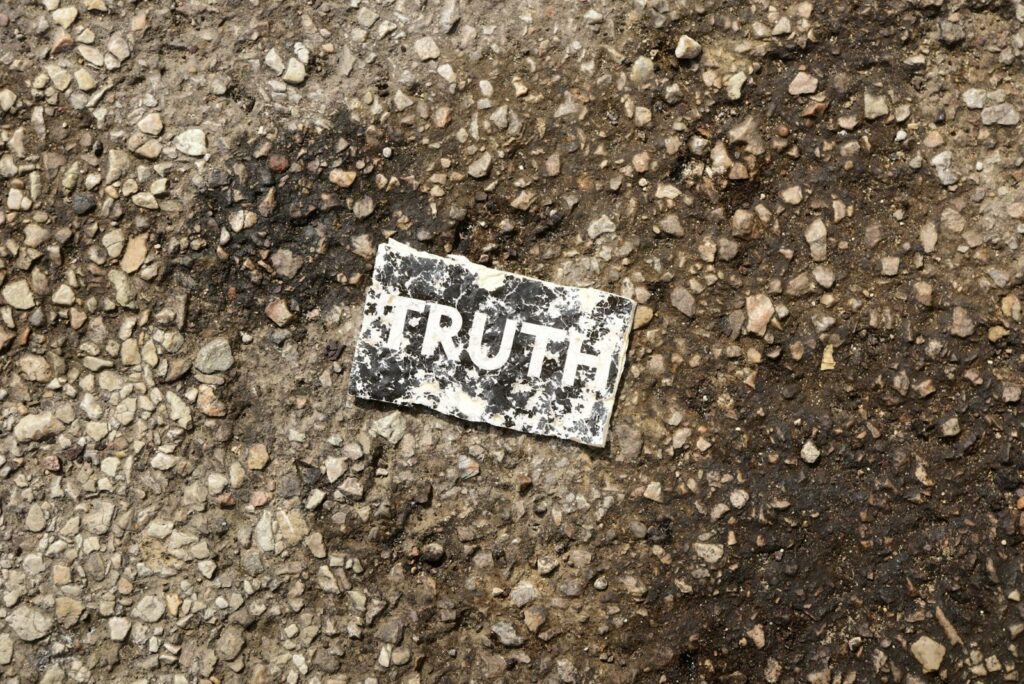
Sometimes the truth is ugly. Photo by Michael Carruth on Unsplash
I see this with politics – elected officials lie all the time. They sell a story because it sounds good. It’s much easier to say, “We’re investigating fraud in states that just happen to be Democratic-led,” rather than, “We plan to bully and terrorize people who disagree with us.” It sounds reasonable to investigate fraud, which it is, but why is the investigation selective? That’s not a baseless example, by the way. In the past few days, the Trump Administration announced it is investigating fraud in 14 blue states. But just the blue ones, not the red ones. How convenient.
But here’s the thing about truth. As Elizabeth Gilbert wrote in her latest memoir, “The truth has legs. It always stands. When everything else in the room has blown up or dissolved away, the only thing left standing will be the truth.” The way I like to think of it is you cannot escape reality. It will grab you by the collar and shake you. It will force you to look it in the face even when every part of you is trying to turn your head. You cannot escape reality any more than you can escape death.
This relates to spirituality because in Sanskrit, the unchangeable entity is Sat. The external manifestation of Sat is satya, or benevolent truthfulness. My spiritual teacher said, “Only satya or truth triumphs and not falsehood. Whenever there is a clash between truth and untruth, truth’s victory is inevitable. … Untruth, being a moving phenomenon, may attain a temporary victory on its march, but never a permanent one. … Falsehood does not win because it is relative, it is ever-changing.”
I take comfort in knowing that eventually the truth will come out. That falsehood doesn’t win because it goes against the unchangeable entity. That people can try to run away from the truth but they can’t run forever. Eventually, truth finds us all and the question becomes, what are we going to do about it?
I dream of a world where we understand a lie is often easier to swallow than the truth. A world where we recognize that even though it seems like lies are winning, their victory is only temporary. A world where we recognize we cannot escape the truth even if we try. A world where we remember the truth always comes out eventually, even when it’s ugly.
Another world is not only possible, it’s probable.
I had an interesting experience with certainty on Saturday night. I went to a Democratic Socialists of America teach-in where they discussed how veganism feeds anticapitalism and vice versa. They served dinner and I was SURE I’d be able to eat almost nothing because while I’m vegan, I don’t eat onions and garlic, which are basically in everything. It turns out they ordered food from one of a handful of restaurants that don’t cook with those ingredients!
And then on the way home, all the transit apps said my bus was on time (it wasn’t). I was certain I’d missed my connecting bus because of the delay, which, again, all of the transit apps said would be the case, but I didn’t! The connecting bus was also late, which meant I waited a grand total of 2 minutes rather than the 15 I begrudgingly anticipated. Here was the trickster working in my favor. I usually think of the trickster as the disruptive force that makes it rain on your wedding day, but sometimes the trickster can work to your benefit.
These experiences around uncertainty reminded me of a quote a friend shared. Painter Paul Cézanne said, “We live in a rainbow of chaos.” I don’t know about you but I don’t naturally associate “rainbow” with “chaos.” I don’t think of chaos and unpredictability as beautiful. I think of them as dark, ugly, something to be avoided at all costs. But that’s not the full story, is it? As the Post-It note on my bathroom mirror says, “Remember: Life can be surprising and delightful.”
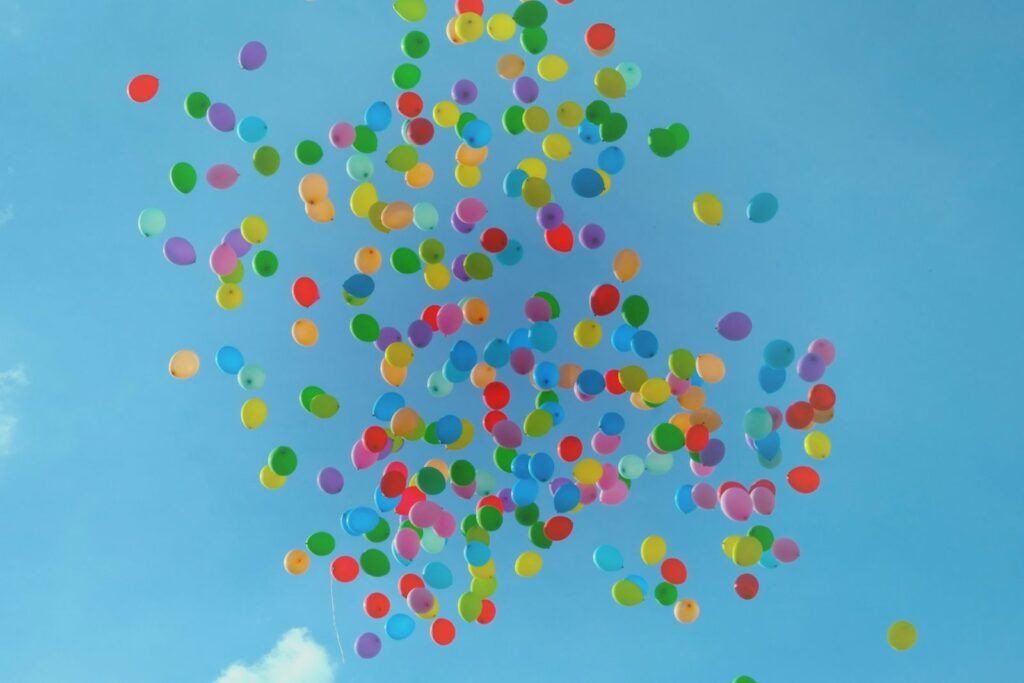
Is it a rainbow? Yes? It is chaos? Also yes. Photo by Luca Upper on Unsplash
Life can be chaotic and beautiful. Uncertain and joyful. It’s all of it. Life is a broad range of experiences and I do better when I embrace that. There’s a psychological concept that supports this called emodiversity, which means letting yourself feel an abundant range of emotions – not just the pleasant ones. A study of 37,000 people found that those who do that have better mental health, decreased depression, better physical health, and know how to handle a wide range of behavioral situations.
Diversity is the name of the game over and over again. Diversity in emotions. Diversity in the gut microbiome. Diversity in the gene pool. We are stronger with diversity. My spiritual teacher says:
“Some people say that disparity is the order of nature; therefore, there must be differences between one group and another, between rich and poor, etc. However, such a proposition is fundamentally incorrect. Instead, it is correct to say that diversity is the order of providence. One must remember that identicality is disowned by nature – nature will not support identicality. Whenever identicality occurs, a sort of structural explosion takes place and the entire structure is broken into pieces. So diversity is the law of nature and identicality can never be.”
He’s talking specifically about social structures but the concept also applies to our internal diversity, or in this case, our internal range of emotions and experiences. Life is meant to be a rainbow of chaos, and instead of becoming something to fear, I’m learning it’s something I can enjoy.
I dream of a world where we recognize the only certainty we’ll ever have is that life is uncertain. A world where we understand chaos and unpredictability don’t have to be bad things. A world where we embrace our full range of emotions and accept diversity internally and externally. A world where we remember we live in a rainbow of chaos.
Another world is not only possible, it’s probable.
A few people have said to me they don’t feel particularly motivated right now, that they’re low energy, and just generally not feeling amazing. What keeps coming to mind is a post I wrote in November 2021 about letting things be terrible. Even though I’m not recovering from a car accident or participating in the now-defunct NaNoWriMo organization challenge, this post still feels relevant. Enjoy.
Right now, I’m engaging in NaNoWriMo (National Novel Writing Month), which means I’m aiming to write 50,000 words in a month. For the uninitiated, that’s a novel the length of The Great Gatsby. It’s approximately 75 pages single-spaced in a Word processing document. I’m pretty sure this new novel I’m working on is the worst piece of writing in the known universe, but I’m pressing forward. (Side note from 2026 me: It took me four years to finish it, but I’m incredibly proud of the novel I worked on during NaNoWriMo, and the people who’ve read it all told me that I wrote something wonderful. I’m currently pitching the book to literary agents.)
The advice for those writing during NaNoWriMo is to tame your inner editor. Instead of hitting the “delete” key when you think something sounds awful, just keep putting words on the page. Let the writing be bad. There’s something liberating in indulging in that mentality. To revel in it. To acknowledge, “I know this can be said better, but I don’t care.”
As someone with a history of perfectionism, it’s difficult for me to stop judging end results, but that’s what I’m encouraging myself to do right now. I’m acknowledging the new novel is bad, that it will likely change a lot before I’m finished, but I’m letting that be OK. I’m not nitpicking myself in the moment and instead giving myself freedom to relax, to explore, to try new things on the page. It’s fun!
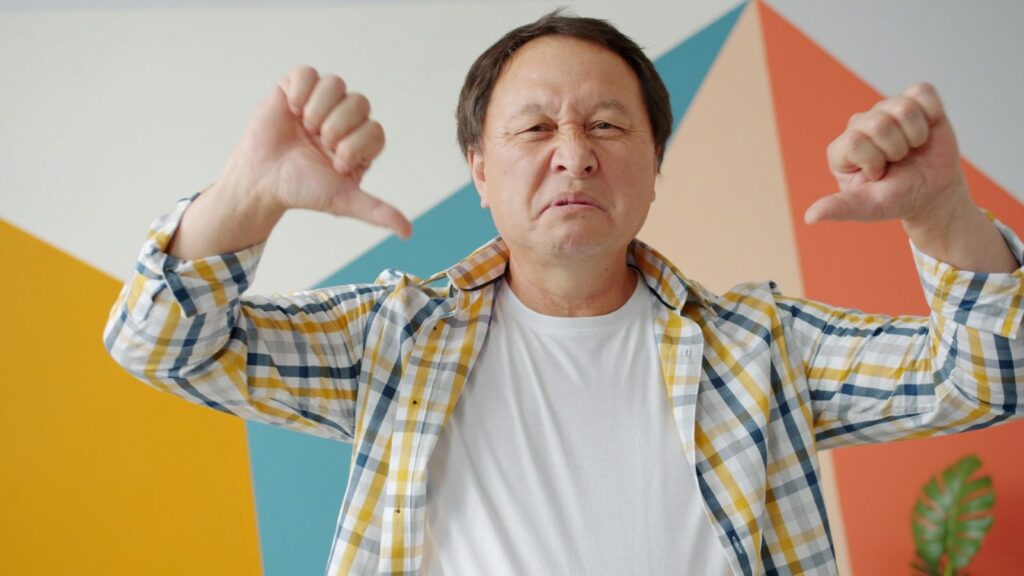
Let it be terrible sometimes. Photo by Vitaly Gariev on Unsplash
I notice this principle, “Let it suck,” applies not only to creative projects, but also to the physical body (sometimes). Headline: I’m fine, but on Saturday night, I was in a car accident. While driving through an intersection, a car ran a red light and hit the driver’s side of my friend’s car. We swerved to the right, and the impact jostled me so I banged up my elbow and knees against the console very, very minorly. It’s my right shoulder blade that hurts this morning from the whiplash.
I took out a tennis ball and massaged the shoulder blade, but it still hurts. Nothing is dislocated; it just hurts. Because I was in a car accident. And instead of rushing to fix it, change it, solve it, I said to the pain, “I’m here. I’m listening, body.” I’m letting the pain be here, I’m letting things suck because sometimes that’s all we can do. The body heals on its own timeframe and that doesn’t necessarily mean something is wrong.
It reminds me of this NY Times article I read a few years ago, where an American woman had a hysterectomy in Germany. When she asked about painkillers post-surgery, her medical team said she’d be given ibuprofen, and that’s it. When she talked to one of her doctors about it, he said, “Pain is a part of life. We cannot eliminate it, nor do we want to. The pain will guide you. You will know when to rest more; you will know when you are healing. If I give you Vicodin, you will no longer feel the pain, yes, but you will no longer know what your body is telling you. You might overexert yourself because you are no longer feeling the pain signals. All you need is rest.”
It confounded her, but it turned out her doctors were right. She didn’t need painkillers – she needed rest and patience. She let things suck, she let her body feel terrible, and that was her wisest course of action. For this month, I, too, am letting things suck in more ways than I anticipated, and that perhaps is a greater accomplishment than writing the worst novel the world has ever seen in the course of 30 days.
I dream of a world where we let things suck sometimes. A world where we let our creativity flow without any hindrance. A world where we check our self-editors at the door. A world where we let ourselves feel pain when it arises because it provides us with important information to guide our lives and direct our attention.
Another world is not only possible, it’s probable.
I just finished Elizabeth Gilbert’s latest memoir, All the Way to the River, and a few lines jumped out at me. In one art piece (because the memoir includes her doodles), she writes, “Replacing fantasies with different fantasies is not a good idea. Trade fantasy, which has a storyline, with mystery, which does not.”
As we open this new year, that feels like the best possible advice I could hear. So much of 2025 was a dismantling of fantasies and storylines for me. It was understanding that happily ever after doesn’t exist, and instead, life is a wheel. It was also a lesson in realizing that plans will always go awry, and it’s better for me to plan for that, or in other words, to welcome the trickster.
I want to be omniscient. I want to know everything right now, but as my former therapist used to say, “How’s that working out for you?” My friend, it is not working out for me. Not even a little. Trading one fantasy for another, one plan for another, only sets me up for disappointment. Honestly, I’m a little tired of disappointment. I’d like to get off this ride, please.
And even though my spiritual practice advocates recognizing our true nature, i.e., that we are all divine, or spiritual beings having a human experience, my teacher does NOT say we should try to know everything. In fact, he says, Cosmic Consciousness has been “creating this unique, colorful world with His various powers. Why He is doing so is known to Him alone; no one else knows it. … It is a fact that human beings with their limited intellect can never understand the secrets of why and how [God] has been creating this universe; their wisdom can never fathom this mystery.”
Instead of trying to puzzle everything out, my teacher says, “You should think, ‘My little intellect cannot fathom all this – rather let me do one thing, let me establish a relation of sweet love with Him,’” because ultimately, that’s the only thing that brings relief anyway.
In Liz’s poem “God Responds to My Withdrawal,” she touches on this, writing from the perspective of God. Here are a few excerpts:
Nothing you could ever feel
is bigger than what I can hold.
Let me surround you with holy silence, then
while you struggle.
Let me embrace you with my infinite mystery
while you rage.
….
Being everywhere, I have nowhere better to be.
Being everything, I have nothing better to do.
Bring it all to me, then.
….
Feel everything you need to feel, my child–
but feel me, too, in this unrelenting furnace.
Feel me, too.
As people, places, and things continue to baffle me, the best I can do is keep developing a loving relationship with myself and with my Higher Power. And instead of replacing one storyline with another, I’m better served by living in the mystery.
I dream of a world where we recognize our plans will always go awry. A world where we stop trying to shoehorn life into a particular storyline. A world where we turn inward for comfort and relief. A world where instead of trying to be omniscient, we make peace with living in the mystery.
Another world is not only possible, it’s probable.
I’m sick and feel unable to record the audio for this post. Also, I’m pretty sure no one wants to hear me sniffling anyway. In terms of why I’m resharing this post from August 2021, I honestly don’t know, but it’s what kept ringing through my head. Maybe someone out there really needs to hear it. Enjoy.
I keep thinking about an essay I read in the book All I Really Need to Know I Learned in Kindergarten by Robert Fulghum. He writes about how he lived at the dead end of a dead-end street, two blocks long, at the bottom of a hill in north Seattle. At the top of the hill, two big yellow and black signs declared: STREET ENDS. And at the end of the street where Fulghum resided, another big sign with stripes and reflectors stated the obvious: DEAD END.
You could see that “DEAD END” sign a long way off – in other words, the dead end didn’t sneak up on you. However, what’s so remarkable is people drove down the street anyway and seemed to be baffled when the street did, in fact, end.
Fulghum writes:
“Not just part way, mind you. Not just to where the reality of the situation cleared up. No, sir. They drove all the way down, right up to the sign, the big black one with stripes, the one that said DEAD END.
“And they read that sign two or three times. As if they were foreigners and had to translate the English. They looked on either side of the sign to see if there was a way around it. Sometimes they sat there for two or three minutes adjusting their minds …. There was no pattern. All kinds of vehicles, all kinds of people, broad daylight and pitch dark. Even a police car a couple of times. And once a fire truck.
“Innate skepticism or innate stupidity? I confess I do not know. A psychiatrist friend tells me it’s a sample of an unconscious need to deny – that everyone wants the road or The Way to continue on instead of ending. So you drive as far as you can, even when you can clearly read the sign. You want to think you are exempt, that it doesn’t apply to you. But it does.”
His last two lines especially strike me. We want to think we are exempt, that whatever we’re confronting – a dead-end street, a deadly virus, whatever – doesn’t apply to us. But it does. I’d wager the majority of us want to feel special. We want to be right, to know the truth, and even when there’s evidence demonstrating we’re wrong, we can’t accept it. Why is that? I think one reason is U.S. culture doesn’t have many examples of people saying, “I don’t know.”
Instead of saying, “I don’t know,” we make something up, we pretend to know. We try to save face versus practicing humility and admitting, “I don’t know,” or even, “Maybe I’m wrong.” Who says maybe I’m wrong these days?!? I can’t remember the last time I heard in a public space someone open to the possibility they don’t know everything. It’s as if due to the internet and having so much knowledge at our fingertips, we’re loath to say, “I don’t know” or “I could be wrong.”
Also likely wrapped up in “I don’t know” is fear. My spiritual teacher says, “Humans do not fear to tread a known path, but they always hesitate and fear to travel unknown paths.” Sometimes those unknown paths are intellectual ones. It’s far easier to cling to a thought or belief you learned early on and is corroborated by friends and family than to change your mind and believe something new. But that’s the beautiful thing about the mind – it can be changed.
There’s nothing shameful or humiliating about saying, “I don’t know,” or “I was wrong.” No human is omniscient. We aren’t supposed to know everything, and that means we’d be better off acknowledging that’s true. We’d also be better off accepting reality when it’s staring us in the face – like when we’re confronted with a dead-end street.
I dream of a world where we understand that if there’s a road sign that says “DEAD END,” the street ends. A world we understand if we think we know something other people don’t, we’re likely deluding ourselves. A world where we’re OK with some uncertainty and we embrace the power of saying, “I don’t know” and “Maybe I’m wrong.” A world where we all learn from dead-end streets.
Another world is not only possible, it’s probable.


